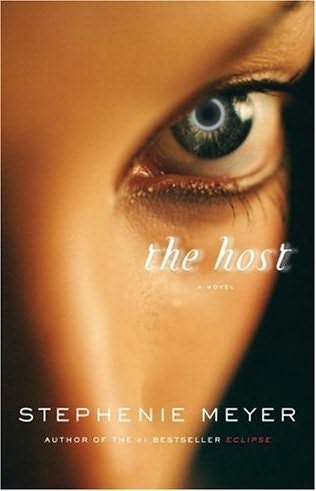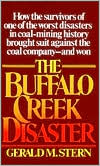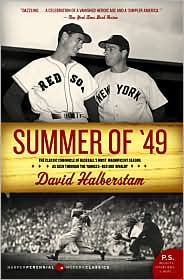
Why
The Time Traveler's Wife? Why not
The Time Traveler? Or better yet, why not
The Time Traveler and His Wife? After all, it's the dashing librarian and accidental time traveler Henry who is the real focus of this novel, not his perpetually abandoned wife, Clare, or at the very least they should share top billing. Is the author, Audrey Niffenegger, trying to emphasize Clare's experience as the Other in this novel, the one left behind, the one who has to deal with the constant abandonment and frustration? That perhaps would have made a more interesting novel. Such are the things that perplexed me about
The Time Traveler's Wife. My friend Rachel Bethany bought this book for me at the Strand, hoping that I would love it as much as she did; I'm sad to say that I didn't much care for it. But, in deference, let's start with what the book does well: It's amazingly well-plotted. The plot centers around Henry DeTamble, who has the unique ability to travel through time, but not the ability to control when he goes or to when. As a result, he is constantly appearing in strange places and times, stark naked. He is married--at some point--to Clare Abshire, a beautiful redhead who is--or will become--an artist. But the nature of their relationship is unusual; she meets him for the first time when she is a child and he appears in the meadow outside her family's home, thirty years old and nude. He meets her for the first time when they are the same age; she jumps for joy because she has been waiting for years to meet him in her own timeline, and yet he has no idea who she is.
There's a sort of fascinating circuity here: Clearly Henry and Clare are meant to be together, but what is the force that drives them together? He appears that first day in the meadow because has a deep connection to Clare, but without that first appearance--and those thereafter--that connection would never have been formed. It's an interesting question that Niffenegger does disappointingly little to develop.
Yet, everything has been thought ought with the utmost care and precision; the overlapping timelines must have taken an extraordinary effort to map out. Nothing seems to be out of place; the novel is refreshingly clear of the little nonsense paradoxes that seem to creep into bad science fiction. Even more impressively, Niffenegger finds a way to arrange these time traveling episodes so that they have some semblance of true chronology, and yet still manages to ratchet the tension up considerably in the novel's closing chapters.
Now for the bad: I could not have cared any less about what happened to these characters, who were absolutely obnoxious. Niffenegger tries to impose some sort of troubled past on Henry through his mother's death in a car accident and his father's ensuing alcoholism, but Henry hardly seems to have any character flaws for it. He is an accomplished fighter and thief, but develops these traits only as a necessity due to his time traveling; otherwise he's just a dashing librarian. Clare is worse, little more than a cipher, with the personality of a sock.
Niffenegger substitutes taste for character. Over the 500+ pages of the novel, we're told what kind of music the characters listen to, what kind of art they enjoy, and what kind of fucking dinner they eat. Everything is so tasteful and cultured, it's hard to shake the impression that Niffenegger is, in some sense, projecting her own awesome tastes onto her characters, begging that we be impressed. Even when Henry and Clare differ, it's obnoxious:
How can Clare listen to Cheap Trick? Why does she like the Eagles? I'll never know, because she gets all defensive when I ask her. How can it be that the woman I love doesn't want to listen to Musique du Garrot et de la Farraille?
Barf. Here's another scene where we open on Clare:
I'm sitting by myself at a tiny table in the front window of Cafe Pregolisi, a venerable little rat hole with excellent coffee. I'm supposed to be working on a paper on Alice in Wonderland for the History of the Grotesque class I'm taking this summer; instead I'm daydreaming, staring idly at the natives, who are bustling and hustling in the early evening of Halsted Street.
Double barf. Henry and Clare teach a lesson to a couple "baby punks":
Henry sits down at the kitchen table, and Bobby sits down across from him. "Okay," says Henry. "You have to go back to the sixties, right? You start with the Velvet Underground, in New York. And then, right over here in Detroit, you've got the MC5, and Iggy Pop and the Stooges. And then back in New York, there were the New York Dolls, and the Heartbreakers--"
"Tom Petty?" says Jodie. "We've heard of him."
"Um, no, this was a totally different band," says Henry. "Most of them died in the eighties."
"Plane crash?" asks Bobby.
"Heroin," Henry corrects. "Anyway, there was Television, and Richard Hell and the Voidods, and Patti Smith."
"Talking Heads," I add.
"Huh. I dunno. Would you really consider them punk?"
A plane crash? Seriously, Bobby? Here are Henry and Clare at dinner:
Kimy gets up and clears our salad plates and brings in a bowl of green beans and a steaming plate of "Roast Duck with Raspberry Pink Peppercorn Sauce." It's heavenly. I realize where Henry learned to cook. "What do you think?" Kimy demands. "It's delicious, Kimy," says Mr. DeTamble, and I echo his praise. "Maybe cut down on the sugar?" Henry asks. "Yeah, I think so, too," says Kimy. "It's really tender though," Henry says, and Kimy grins.
It goes on like this, inanely. After 500 pages, I knew what magazines Henry reads, and what concerts Clare goes to, and what they like to eat for dessert, and I knew that Clare's family lives in a house designed by Frank Lloyd Wright. Why Frank Lloyd Wright? Why not?
In
her review, Amanda complained that the novel is bogged down by unnecessarily pornographic material:
They just bother me when they aren't needed for the story to move forward, when they're in there for shock value. It feels completely unrealistic, for instance, for a new mother to lay on her bed, sigh, and say, "My cunt hurts." Who really says that? No one I've ever met, at least.
Usually I'm unsympathetic to complaints that a novel is too graphic, but I think Amanda has it exactly right, or at least part of it exactly right: Somewhere in here is a 200-page novel filled out with nonsense. These scenes aren't just unnecessarily graphic, they're unnecessary. Why does Niffenegger devote ten pages to Clare and Henry discuss how much more sex they have than other couples, and how great it is? To make the rest of us feel bad? Or just to make us think, hey, these two, they're cool, I wish I could be like them. Niffenegger certainly seems to want to.
And the tragedy is that, somewhere between Richard Hell and the Roast Duck with the Pink Peppercorn Sauce, is a story with tremendous symbolic power that speaks to the nature of fate, of time, and of love. I think that maybe if Niffenegger had spent more time thinking about those things, and less about how to convince us Henry and Clare are awesome, it might have been an infinitely better book.
 Dog Soldiers by Robert Stone
Dog Soldiers by Robert Stone Life of Pi by Yann Martel
Life of Pi by Yann Martel Lolita by Vladamir Nabakov
Lolita by Vladamir Nabakov Middlesex by Jeffrey Eugenides
Middlesex by Jeffrey Eugenides



 A couple of weeks ago I signed onto Facebook and saw that one of my friends had voted in some poll as to who was the worst president in recent history. My friend had cast his voted for George W. Bush. Now my friend grew up in the same conservative Christian circles that I did, but much like myself, finds himself somewhere outside these circles. The first comment came from an unbelievably opinionated and obnoxious person--who we both know: "Are you kidding me Josh? What about the peanut farmer from Georgia?" Josh unsuccessfully tried to brush this off with a bit of a joke. Twenty comments later people are referring to Carter as a "disaster," and some crazy man who inexplicably capitalizes the first letter of every word is ranting about Obama and the end of the United States as we know it. These are Christian people...I suppose. Carter is a Christian. How is it that these people could harbor such negative feelings toward arguably the most active ex-President? Well, as luck would have it, this book offers at least a partial answer to this question.
A couple of weeks ago I signed onto Facebook and saw that one of my friends had voted in some poll as to who was the worst president in recent history. My friend had cast his voted for George W. Bush. Now my friend grew up in the same conservative Christian circles that I did, but much like myself, finds himself somewhere outside these circles. The first comment came from an unbelievably opinionated and obnoxious person--who we both know: "Are you kidding me Josh? What about the peanut farmer from Georgia?" Josh unsuccessfully tried to brush this off with a bit of a joke. Twenty comments later people are referring to Carter as a "disaster," and some crazy man who inexplicably capitalizes the first letter of every word is ranting about Obama and the end of the United States as we know it. These are Christian people...I suppose. Carter is a Christian. How is it that these people could harbor such negative feelings toward arguably the most active ex-President? Well, as luck would have it, this book offers at least a partial answer to this question.



 I fully expected to enjoy this book, especially after reading
I fully expected to enjoy this book, especially after reading 

